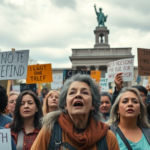Indiana University Shutters DEI Office Amid New Mandates
In a significant shift reflecting broader trends across educational institutions, Indiana University (IU) is closing its diversity, equity, and inclusion (DEI) office in response to new state and federal mandates. These mandates, inspired by political figures such as former President Donald Trump and Indiana Governor Mike Braun, target DEI-aligned policies and programs within government and educational sectors. This closure affects all nine IU campuses and aligns the university with other Indiana institutions like Ivy Tech Community College and Ball State University, which have similarly rolled back their DEI efforts.
Background and Context
Established in 1999, Indiana University’s DEI office functioned as a cornerstone for cultivating a diverse and inclusive environment across its campuses. The office facilitated scholarships, recruited diverse students and faculty, and provided essential campus resources. With the new directive, IU’s DEI functions are set to be decentralized, ensuring that student support and engagement efforts persist through reallocated programs. Additionally, the Office of Institutional Equity has been renamed the Office of Civil Rights Compliance, which will continue to address complaints related to harassment, discrimination, and sexual misconduct.
The catalyst for this decision can be traced back to political initiatives stemming from both state and national levels. Governor Mike Braun has been a vocal advocate against DEI initiatives; within his first days of holding office, he signed an executive order eliminating DEI from state government. He also recently signed legislation allowing individuals to sue public institutions over DEI policies. Concurrently, Indiana Attorney General Todd Rokita is verifying DEI compliance at other universities, including the University of Notre Dame.
Local Impact on the Community
The closure of the DEI office at IU raises significant concerns about the local impact on community interest, given the diverse student body across the university’s campuses. Many residents and students worry that this decision may reduce awareness and support for diversity-related issues within the academic setting.
Leah Roberts, a Bloomington resident and IU alumna, expressed disappointment over the closure. “The DEI office played a crucial role in my university experience. It created a sense of belonging for students from various backgrounds, making IU a truly diverse institution,” Roberts remarked.
From a local economic perspective, the ripple effects of these changes could affect businesses and stakeholders who rely on a vibrant, diverse academic community.
Connections to Previous Events
This move is not an isolated event but part of an ongoing national trend of rolling back DEI initiatives spurred by current state and federal strategies. Indiana itself has witnessed a series of legislative adjustments aiming to redefine the role of diversity initiatives within public institutions. Governor Braun’s actions, coupled with former President Trump’s policies, signify a concerted political effort to reshape how diversity and inclusion are perceived and implemented within educational environments.
Future Implications
The dismantling of IU’s DEI office may have long-term implications for the university and potentially set a precedent for other institutions in Indiana and beyond. Critics of the change argue that reducing focus on diversity and inclusion poses a risk of marginalizing minority voices and communities, which can hinder academic and social progress in higher education.
On the flip side, supporters believe that reallocating DEI resources to broader student services might level the playing field for all students, shifting focus from individual characteristics to academic merit and institutional compliance.
Dr. Alan Hayes, a policy analyst at the Institute for Education and Social Policy, warns of unforeseen consequences: “These decisions could lead to a decreased recruitment of diverse staff and students, ultimately affecting the cultural richness and academic dynamism that diversity brings to university campuses.”
Balanced Perspectives
While Indiana University maintains that the change aligns with its commitment to preparing students for success, reactions remain mixed among stakeholders. Proponents argue that restructuring these offices to focus solely on civil rights compliance might streamline operational efficiencies and reduce redundancy in student support services.
Yet, Democrats and advocacy groups argue that dismantling DEI offices sends the wrong message about university priorities at a time when conversations around diversity and equity are more critical than ever.
Available Resources and Support
In light of these developments, Indiana University asserts that student resources remain available across its campuses. The university plans to hold informational sessions and discussions to address community concerns and ensure transparency throughout the transition. Students and staff are encouraged to reach out to the newly established Office of Civil Rights Compliance for questions or reports related to harassment or discrimination.
As this scenario continues to unfold, residents and observers alike will be closely monitoring the outcomes of these policy changes on the community and within the broader landscape of higher education. In an era of rapid socio-political shifts, these decisions underscore the complex interplay between government policy and academic integrity, highlighting the essential balancing act between regulatory adherence and community engagement.







